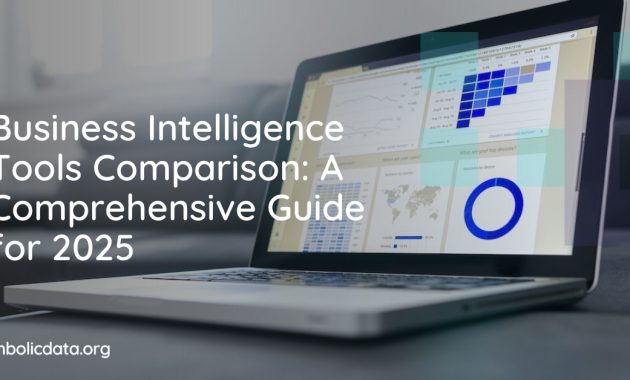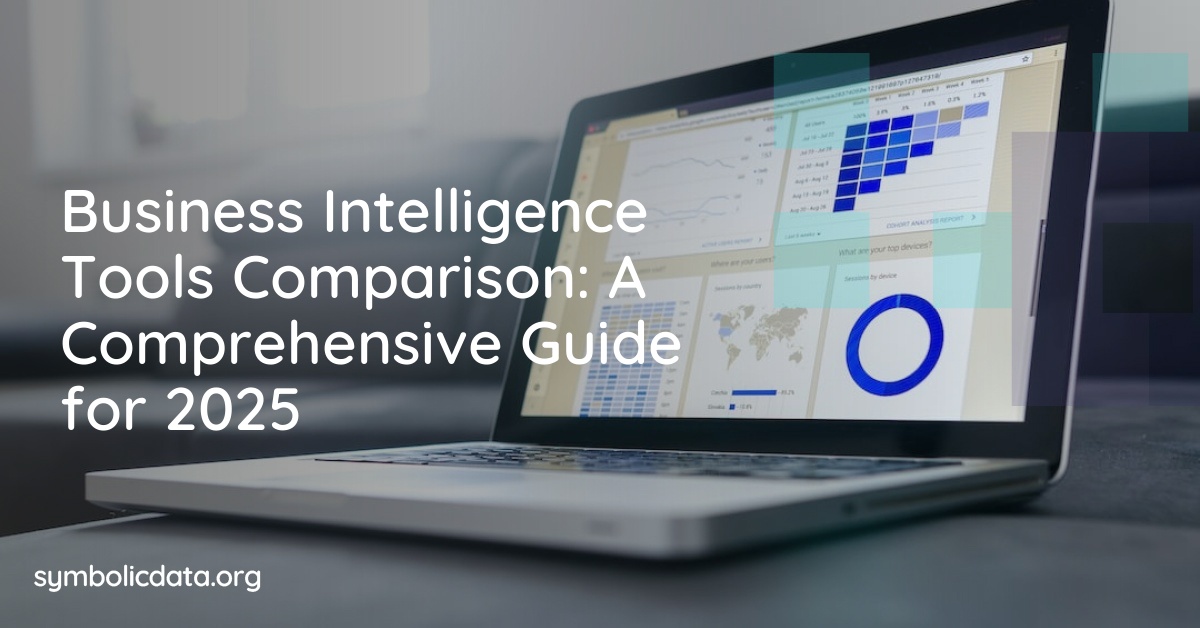
Top 5 Business Intelligence Tools to Drive Data-Driven Results
In today’s fast-paced business environment, data is king. Companies are drowning in information, but the real challenge lies in extracting meaningful insights from this deluge. This is where business intelligence (BI) tools come into play. They empower organizations to analyze data, identify trends, and make informed decisions. This article delves into the best 5 business intelligence tools that are transforming how businesses operate. These tools offer a range of features, from data visualization to advanced analytics, helping organizations achieve data-driven results. The following are the best business intelligence tools.
Understanding the Power of Business Intelligence
Before we explore the specific tools, it’s crucial to understand the core principles of business intelligence. At its heart, BI is a technology-driven process for analyzing data and presenting actionable information. It involves collecting data from various sources, processing it, and then presenting it in a way that is easy to understand. This typically involves dashboards, reports, and visualizations. Effective BI allows businesses to:
- Make better decisions: By providing a clear view of performance, BI helps leaders make informed choices.
- Improve efficiency: Automation and streamlined reporting save time and resources.
- Identify opportunities: Data analysis can reveal new market trends and growth areas.
- Gain a competitive edge: Understanding customer behavior and market dynamics allows for strategic advantages.
The benefits of implementing robust business intelligence solutions are undeniable. Companies that leverage these tools are often more agile, responsive, and successful. The right BI solution can significantly improve performance. Finding the right business intelligence tool can be a game-changer.
Top 5 Business Intelligence Tools for Data-Driven Results
Selecting the right BI tool depends on your specific needs and budget. However, some tools consistently rank higher due to their features, ease of use, and overall value. Here are five of the best business intelligence tools available today:
Power BI
Developed by Microsoft, Power BI is a leading business intelligence tool known for its intuitive interface and powerful capabilities. It seamlessly integrates with other Microsoft products, making it a popular choice for businesses already invested in the Microsoft ecosystem. Power BI offers a wide array of data connectors, allowing users to pull data from various sources. Its interactive dashboards and visualizations are particularly effective for communicating complex information. Key features include:
- Data visualization: Create compelling charts, graphs, and maps.
- Data modeling: Build relationships between datasets for deeper insights.
- Collaboration: Share reports and dashboards securely with colleagues.
- Integration: Works well with Excel, Azure, and other Microsoft services.
Power BI is a robust and versatile tool suitable for businesses of all sizes. Its scalability and affordability make it a strong contender in the business intelligence market.
Tableau
Tableau is another industry leader, celebrated for its sophisticated data visualization capabilities and user-friendly design. It allows users to explore data visually, making it easier to identify patterns and trends. Tableau offers a drag-and-drop interface, making it accessible to users with varying levels of technical expertise. It provides a wide range of data connectors and supports real-time data updates. Tableau’s strengths include:
- Interactive dashboards: Design dynamic and engaging visualizations.
- Data blending: Combine data from multiple sources for comprehensive analysis.
- Advanced analytics: Utilize statistical modeling and forecasting.
- Mobile support: Access reports and dashboards on the go.
Tableau is an excellent choice for organizations that prioritize data visualization and user experience. Its ability to handle large datasets and complex analyses makes it a top choice for many enterprises. It is one of the best business intelligence tools.
Qlik Sense
Qlik Sense is a self-service business intelligence platform renowned for its associative engine. This technology allows users to explore data in a more intuitive way, revealing connections that might be missed with traditional tools. Qlik Sense offers a modern, web-based interface and supports a variety of data sources. Key features include:
- Associative analytics: Discover hidden relationships in data.
- Self-service BI: Empower users to create their own analyses.
- Data storytelling: Present insights in a narrative format.
- Mobile BI: Access reports and dashboards on any device.
Qlik Sense is ideal for businesses that want to foster a data-driven culture. Its ease of use and powerful analytical capabilities make it a valuable tool for various departments. You can get data-driven results using this business intelligence tool.
Sisense
Sisense is a business intelligence tool that focuses on providing a complete end-to-end solution. It offers powerful data preparation, analysis, and visualization capabilities. Sisense is particularly well-suited for handling large and complex datasets. It is known for its in-memory processing, which allows for fast query performance. Key features include:
- In-memory analytics: Achieve fast query speeds.
- Embedded analytics: Integrate BI into your applications.
- Data governance: Ensure data accuracy and security.
- Scalability: Handle large datasets with ease.
Sisense is a great choice for businesses that need a comprehensive BI solution capable of handling complex data environments. It is one of the most popular business intelligence tools.
Looker
Looker, now part of Google Cloud, is a modern business intelligence and analytics platform that emphasizes data governance and collaboration. It uses a semantic layer, which allows users to define and reuse business metrics consistently. Looker is well-suited for organizations that want to ensure data accuracy and consistency across their teams. Key features include:
- Data modeling: Define a consistent view of your data.
- Collaboration: Share insights and collaborate on analyses.
- Embedded analytics: Integrate BI into your applications.
- Data governance: Ensure data accuracy and security.
Looker is a great option for organizations that prioritize data governance, consistency, and collaboration. Its focus on data modeling and its integration with Google Cloud make it a strong choice for businesses looking for a modern BI solution. This is a great business intelligence tool to consider.
Choosing the Right Tool for Your Needs
The best business intelligence tool for your organization depends on your specific requirements. Consider factors such as data volume, budget, technical expertise, and desired features. Evaluate each tool’s strengths and weaknesses to determine which one aligns best with your goals. Consider a free trial or demo to experience the tool firsthand. The right BI tool will empower your team to make data-driven decisions. This will lead to better outcomes.
Conclusion
In conclusion, the top 5 business intelligence tools discussed in this article offer powerful capabilities for data analysis and visualization. Power BI, Tableau, Qlik Sense, Sisense, and Looker all provide unique features and benefits. By selecting the right tool, businesses can unlock valuable insights, improve decision-making, and gain a competitive advantage. Embrace the power of data and transform your business into a data-driven organization. Data-driven results are within reach.
[See also: Related Article Titles]

